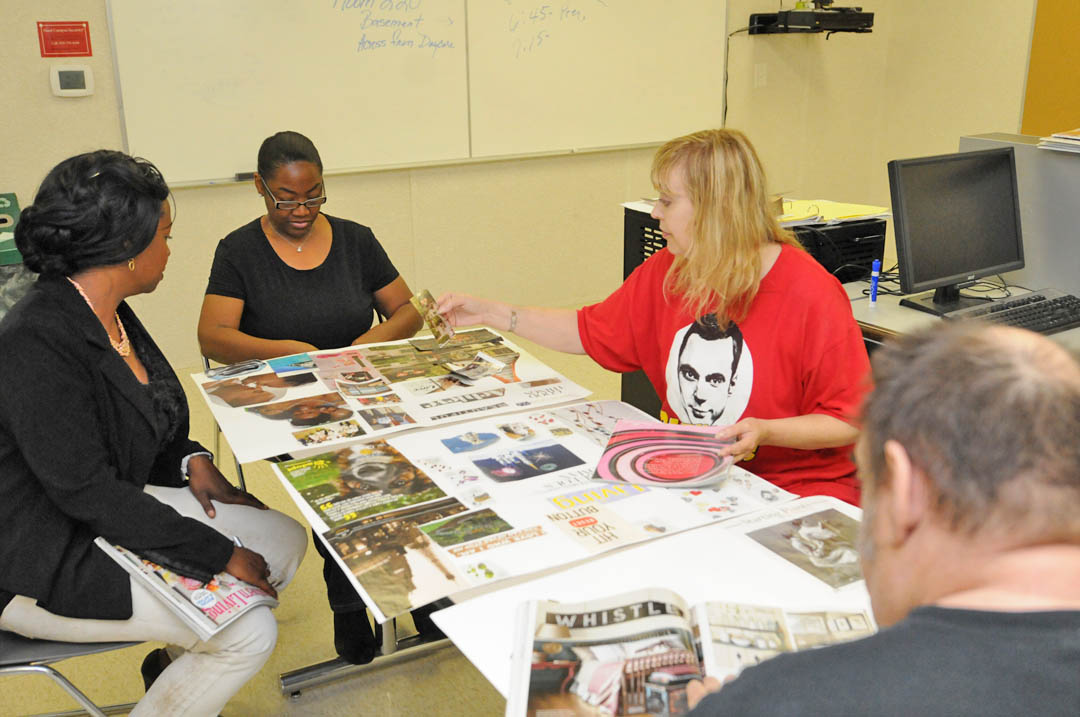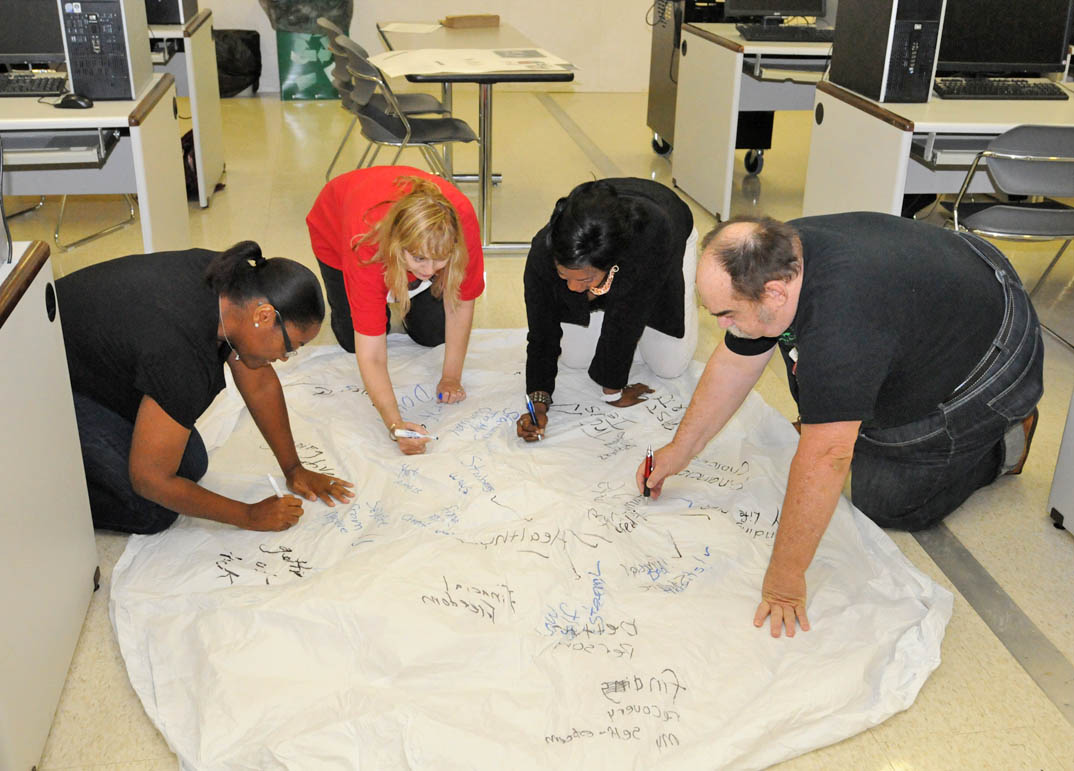
College News
CCCC's Fresh Start program opens doors for former offenders
08.26.2013 • College & Community, Continuing Education
SANFORD - There is unmistakable intensity in her voice when Crystal McIver describes the difficulties former law offenders face transitioning back into society.
The Central Carolina Community College Human Resources Development coordinator and Fresh Start program instructor explains that a paradigm shift must take place within individuals before they can successfully present themselves to employers.
"They feel they aren't good enough," McIver said. "They are hurt and lost, their spirits are broken down. They claim that no one will hire them, yet former offenders are being hired all of the time. It is all in the way they present themselves."
McIver and Mike Peluso, the Business Services coordinator for the Triangle South Workforce Development Board, saw the need for a course that would teach "soft skills" that assist individuals with positive thinking, communication, healthy self-esteem, people skills, and goal setting. Called "Fresh Start," the program is now in its third round of classes and has already reported several success stories.
The first 30-day class had an enrollment of five students and two out of the five are now formally employed, McIver stated. Another of the students decided to pursue a college degree and is now enrolled in a bachelor's program. Two students from the second round of classes have enrolled at CCCC and another obtained a job interview immediately upon graduation from the course.
"Federal law discourages employers from having a blanket policy of denying employment to individuals with criminal histories," said Josephus Thompson, Division of Workforce Solutions employment manager and member of the Fresh Start Program Advisory Board. "The Equal Employment Opportunity Commission requires employers to make individualized assessments about the appropriateness of hiring former offenders and gives full consideration to certain factors, including the nature and gravity of the offense or offenses, the time that has passed since the conviction and/or completion of the sentence and the nature of the job held or sought."
There are also resources available to employers who hire individuals. For example, the Federal Bonding Program aids employers who have concerns about hiring qualified but "at-risk" persons, Thompson said.
Graduate Wesley Raeford, who just completed Fresh Start, is very enthusiastic about the program.
"I thought the course was amazing," he said. "It teaches you specific characteristics about yourself and others, how to approach someone, what to say and what not to say. It teaches you to think positive no matter what. If you get a negative feeling from someone, you turn it into a positive."
Raeford, who is over six feet tall with a rich baritone voice, is now enrolled in broadcasting classes at CCCC.
Peluso, who developed the instructional design for the course, said "Fresh Start" not only enhances the skills of the students, but benefits the college as well.
"Everyday I'm out there talking to businesses, finding out what businesses need," Peluso said. "What businesses need is exactly what Crystal is teaching."
Although the program was created for formal offenders, the content of information can be used by anyone who needs a fresh start, said McIver. Fresh Start is divided into three parts: Empower Me, EntrepreNew Me, and Fresh Start Lab. Fresh Start teaches students to identify thought patterns and understand how thoughts affect decision making; communication skills that will allow students to reach desired goals; and goal setting techniques, teamwork, networking skills and behaviors that grow confidence and help students "dream big."
In addition, students learn to identify resources in the community that can assist them in achieving their educational goals such as WIA (Workforce Investment Act); the Johnston, Lee and Harnett Community Action agency; Workforce Solutions; Social Service; and other organizations.
McIver's major goal is to instill in her students the idea that they can become anything they want to become.
"My question to former offenders is, 'When you dream, what do you dream about?'" she said. "Then we teach them to wake up and turn their dreams into a real life plan that will tap into their skills and talent, as well as guide them in positive directions."
For more information about the Fresh Start program at CCCC, contact Crystal McIver at the Lifelong Learning Center at W.B. Wicker, (919) 777-7798 or e-mail her at cmciv653@cccc.edu.

Crystal McIver (left), Central Carolina Community College Fresh Start program instructor, encourages students (from second left) Faye McAuley, Madeleine Bassi, and Terry Mann, all of Lee County, as they work on vision boarding. Fresh Start assists former law offenders in developing positive thinking, communication, healthy self-esteem, and goal setting skills. It also trains them to present themselves positively to potential employers. Creating individual vision boards encourages them to look forward and dream big. For more information about the Fresh Start program at CCCC, contact Crystal McIver at the Lifelong Learning Center at W.B. Wicker, 919-777-7798 or by e-mail at cmciv653@cccc.edu.

Central Carolina Community College Fresh Start program students (from left) Faye McAuley, Madeleine Bassi, instructor Crystal McIver, and student Terry Mann, all of Lee County, work on a 'turning a new leaf' activity during a class. Fresh Start assists former law offenders in developing positive thinking, communication, healthy self-esteem, and goal setting skills. It also trains them to present themselves positively to potential employers. The students wrote their challenges on one side and their future outcomes on the other side. The leaf had to be turned over while everyone was standing on it, an exercise in teamwork. For more information about the Fresh Start program at CCCC, contact Crystal McIver at the Lifelong Learning Center at W.B. Wicker, 919-777-7798 or e-mail her at cmciv653@cccc.edu.
- Central Carolina Community College
- Serving Chatham, Harnett, & Lee Counties, NC
- 1-800-682-8353


